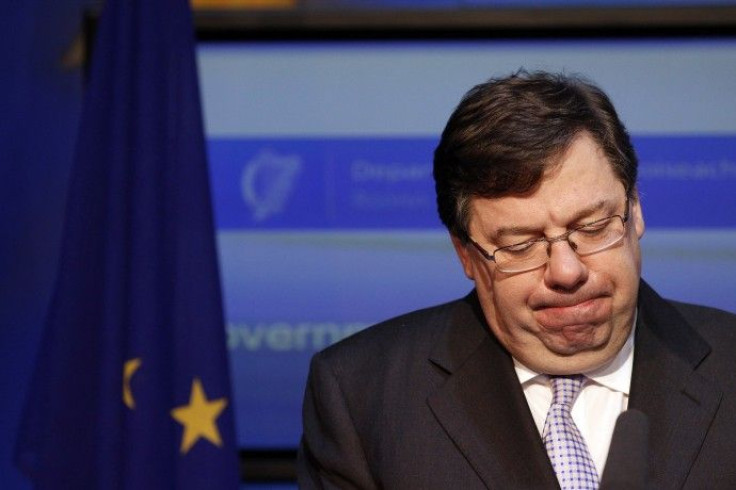Irish government presents severe austerity budget

The government of Ireland has released a grim four-year austerity budget that seeks to alleviate the country's debt crisis.
A series of spending cuts, job reductions and tax hikes are designed to save the country about 15-billion euros.
Concurrently, Dublin is negotiating terms of a bailout program with the European Union (EU) and International Monetary Fund (IMF) that is expected to be valued at approximately 85-billion euros.
The government’s plans include the elimination of nearly 25,000 public sector jobs, the reduction of the minimum wage to 7.65 euros per hour from 8.65, the increase in the value-added tax (VAT) to 22 percent from 21 percent in 2013, plus an additional increase to 24 percent the following year.
In addition, Dublin will expect to effect overall payroll adjustments of 1.2 billion euros by 2014, as well as introduce a reformed pension scheme for new entrants to the public service and reduce their pay by 10 percent.
The bulk of spending cuts will concentrate in areas of public sector pay, pensions, social welfare and public service programs, the government indicated.
The plan envisions 3-billion euros of cuts in public investment by 2014; 2.8-billion euros of welfare cuts by 2014, and the decrease in public sector pay by 1.2-billion euros by 2014.
On the whole, the cuts in spending will amount to 10-billion euros, while tax hikes will generate another 5-billion euros.
The government also said it will keep its corporate tax rate unchanged at the low level of 12.5 percent. However, under the austerity umbrella, the government expects to raise an additional 1.9-billion euros through income tax changes.
Moreover, the government expects to yield another 700-million euros through the implementation of pension-related tax changes, with another 240 million euros in tax savings on the public sector pension-related deduction.
Finance minister Brian Lenihan also stated the government will introduce a property tax, known as “a site value tax,” which will result in most Irish homeowners paying up to 200 euros a year by 2014.
The government explained the cuts are necessary to lower the budget deficit from 11.7 percent this year to 9 percent next year, ultimately to 3 percent by 2014.
In addition, the government said the measures would lead to a reduction in unemployment to below 10 percent in 2014 from the 13.5 percent figure currently. It also expects Irish GDP to grow by an average of 2.75 percent from 2011 through 2014.
Reaction to the harsh budget are likely to be swift and negative.
Opposition parties in Ireland have already called for an immediate general election to protest Prime Minister Brian Cowen’s handing of the crisis.
Ben May, European economist at Capital Economics in London, commented that the details on the shape of the fiscal package are unlikely to do much to ease the markets’ frazzled nerves, implying that Ireland may be effectively locked out of the bond markets for a prolonged period.
“Any hopes that the publication of further details of the Irish Government’s fiscal plans for the next four years might settle markets’ nerves appear to have been dashed,” May added. “Today, 10-year government bond yields have risen by a further 30 basis points to about 8.5 percent, bringing them close to their early November peak.”
May also thinks the Irish government’s growth forecasts are too optimistic.
“If the government is forced to commit to existing budget deficit reduction goals as part of the bailout conditions, it may need to announce additional measures as early as next year,” he indicated.
“[Also] given the huge amount of political uncertainty, it is hardly surprising that the new plan has not provided markets with much relief.
May concludes that there appears little hope of the crisis in Ireland calming until the political uncertainty has been overcome and the bank support measures are shown to be yielding results.
“Even in the unlikely event that the Government can quickly achieve both of these, we still think that it faces an almost nsurmountable task of getting public debt down to a more sustainable level, which will eventually leave it with no choice but to default,” he added.
© Copyright IBTimes 2024. All rights reserved.











